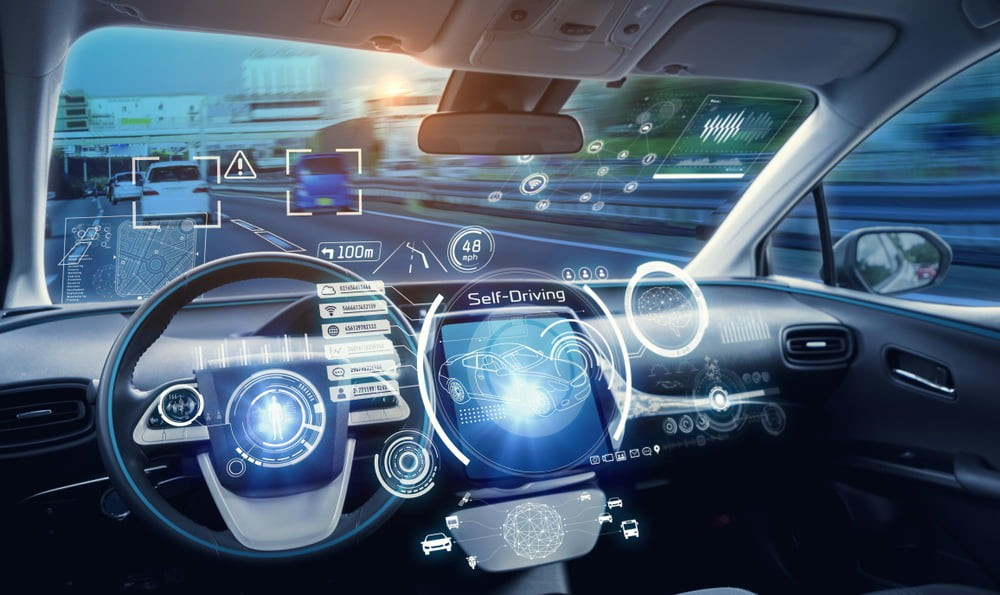Table of Contents
AI Driving Force: Behind the Future of Automotive the concept of artificial intelligence (AI) is no longer futuristic. It’s a tangible reality reshaping industries, and the automotive sector is no exception. From enhancing safety to revolutionizing manufacturing, AI Driving Force is the engine propelling the industry forward.
Over the forecast period of 2024–2030, the artificial intelligence market is projected to develop at a compound annual growth rate (CAGR) of 37.2%, reaching $1035 billion by 2030.The concept of artificial intelligence (AI) is no longer futuristic.
How is AI Used in Automotive Today?
AI’s influence on the automotive landscape is profound. Here’s a glimpse:
- Advanced Driver Assistance Systems (ADAS): AI-powered systems like adaptive cruise control, lane departure warning, and automatic emergency braking are becoming standard in modern vehicles. These systems analyze real-time data from sensors to make split-second decisions, enhancing safety.
- Autonomous Vehicles: The holy grail of automotive AI, self-driving cars, are rapidly progressing. AI Driving Force algorithms process data from multiple sensors (cameras, lidar, radar) to perceive the environment, make decisions, and control the vehicle.
- In-Vehicle Experience: AI Driving Force is transforming how we interact with our cars. Voice assistants, personalized recommendations, and predictive maintenance are just a few examples. AI learns user preferences to create a tailored driving experience.
- Vehicle Design and Engineering: AI Driving Force is optimizing vehicle design, from aerodynamics to material selection. It helps engineers simulate different scenarios and identify potential issues early in the development process.
The Future of AI in Vehicles

The future of AI in automotive is exhilarating. We can anticipate:
- Fully Autonomous Vehicles: While challenges remain, the eventual arrival of fully autonomous vehicles is inevitable. AI Driving Force will be the cornerstone of this technology, enabling safe and efficient transportation.
- Electric Vehicles (EVs): AI will play a crucial role in optimizing EV battery performance, charging infrastructure, and route planning for maximum efficiency.
- Connectivity: Vehicles will become increasingly connected, sharing data with infrastructure and other vehicles. AI Driving Force will process this data to improve traffic flow, safety, and driver assistance.
- Personalized Mobility: AI will enable highly personalized mobility services, tailoring transportation options to individual needs and preferences.
Which Car Company is Leading the AI Race?
The automotive industry is a fiercely competitive landscape, and several companies are at the forefront of AI innovation. While it’s challenging to declare a definitive leader, companies like Tesla, Waymo, and GM have made significant strides.
- Tesla: Known for its Autopilot system and continuous software updates, Tesla has positioned itself as a pioneer in AI-powered vehicles.
- Waymo: A subsidiary of Alphabet, Waymo is focused exclusively on self-driving technology and has amassed millions of miles of autonomous driving experience.
- GM: With its Cruise division, GM is aggressively pursuing autonomous vehicle development and has partnered with companies like Honda.
Other notable players include Ford, Volkswagen, and a host of tech companies like Apple and Baidu.
The Auto Process AI Driving Force
The term “auto process AI” is somewhat ambiguous. It could refer to AI’s role in automating various processes within the automotive industry. These processes might include:
- Manufacturing: AI-powered robots and systems optimize assembly lines, improve quality control, and predict equipment failures.
- Supply Chain: AI can optimize logistics, inventory management, and demand forecasting.
- Customer Service: Chatbots and AI-powered virtual assistants can handle customer inquiries efficiently.
NetApp: The Data Foundation for AI in Automotive
NetApp, a leading data management and storage company, plays a vital role in supporting AI initiatives in the automotive industry. The massive amounts of data generated by vehicles, sensors, and manufacturing processes require robust storage and management solutions. NetApp offers:
- High-Performance Storage: To handle the demanding workloads of AI and machine learning.
- Data Management: To ensure data integrity, accessibility, and security.
- Hybrid and Multi-Cloud Solutions: To support flexible and scalable AI deployments.
Fueling Autonomous Vehicles and Mobility as a Service (MaaS)
AI is the catalyst for autonomous vehicles and MaaS, transforming transportation as we know it. By enabling vehicles to perceive the environment, make decisions, and navigate safely, AI paves the way for a future where ownership is replaced by access.
Connected Vehicles and Services Around the Globe
Connected vehicles are the backbone of smart cities and intelligent transportation systems. AI processes data from these vehicles to optimize traffic flow, improve safety, and enhance the overall driving experience.
Manufacturing Made Smarter with AI
AI is revolutionizing automotive manufacturing by increasing efficiency, reducing costs, and improving product quality. From predictive maintenance to quality control, AI is transforming the factory floor.
The intersection of AI and the automotive industry is a dynamic and rapidly evolving landscape. We can anticipate many more ground-breaking inventions in the years to come as technology develops further.
2 Responses